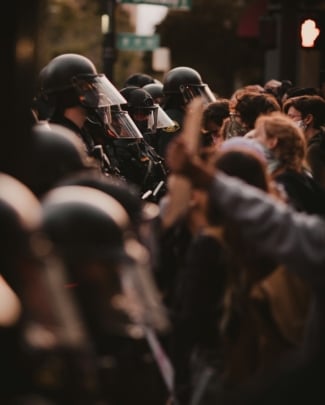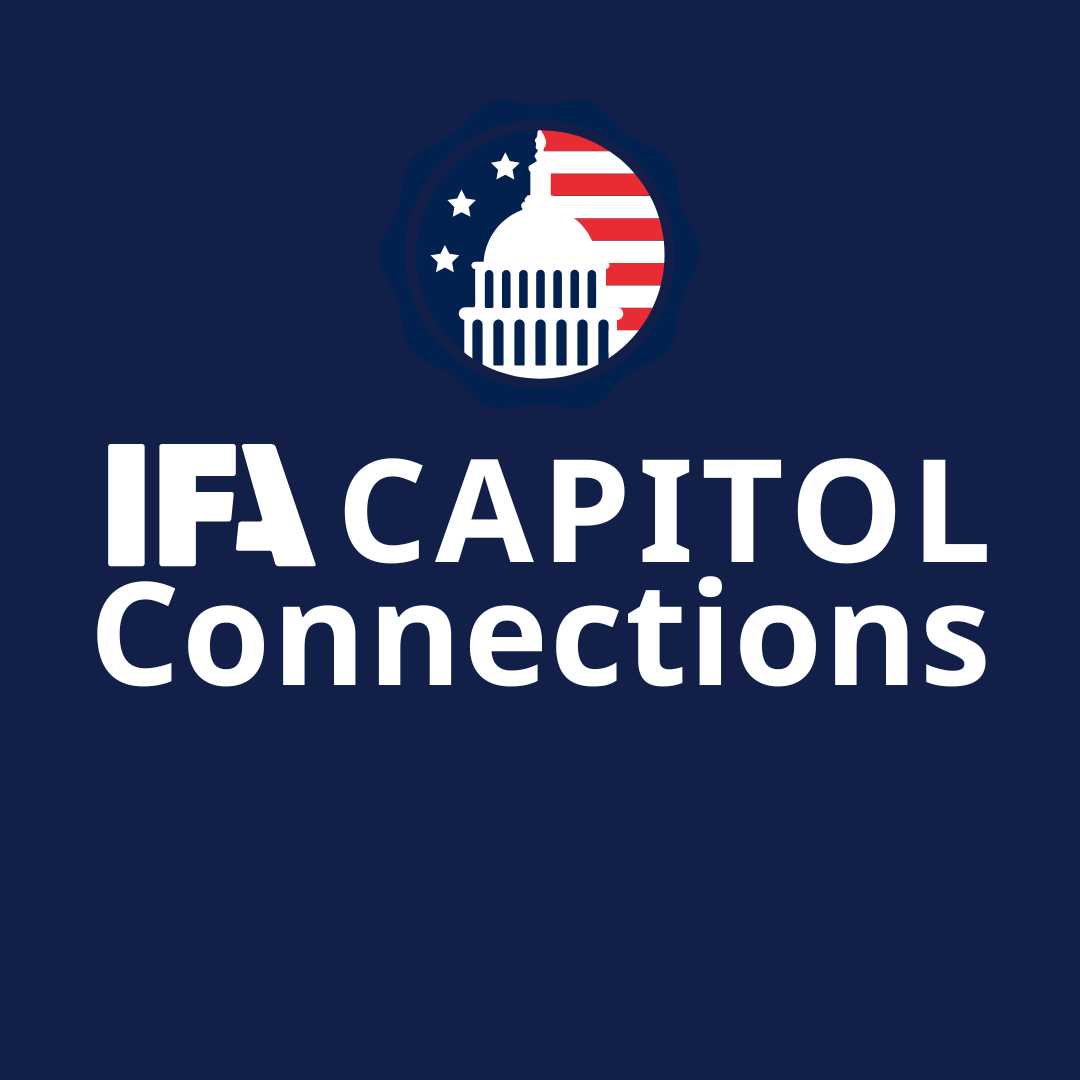TRUMP VS. THE GLOBALISTS
DOJ BRIEF SIGNALS A POLICY SHIFT FOR TRANSGENDER STUDENTS
Trump declares he needs God more than ever as President
Blackwell open about his faith as Ohio candidate
DeVos confirmed and the status of Trump’s other Administration and Staff
TRUMP VS. THE GLOBALISTS
Pray that President Trump would be able to protect our national interests while having good relations with our neighbors around the world.
Donald Trump was everywhere and nowhere.
His name came up almost constantly—in side conversations, in pointed questions to panelists, in broadsides from the main stage. And even when the new American president wasn’t invoked by name, his putative threat to world order was very much on people’s minds: Is trade dead? Is globalization over? What does “America First” mean for the rest of us?
Here at the World Government Summit—a sort of Middle Eastern Davos-in-the-making put on by the United Arab Emirates, and the first major international confab since Trump took office—the mood among the 4,000 or so attendees was one of confusion mixed with concern.
After all, this was a gathering of precisely the kind of cosmopolitan elites Trump ran against on the campaign trail, and has vowed to disempower as president.
If there’s anyone who embodies the idea of globalism, it’s Klaus Schwab, founder of the Switzerland-based World Economic Forum, who opened the conference with a grim assessment of the populist wave led by Trump. “People in some parts of the world are angry. Facts do not anymore count. Fake news may become more important than reality,” he said.
Schwab, whose organization has come to symbolize the idea of a borderless world that Trump rails against, also offered something of an apology. “We should not go back to neoliberalism, and say we want to fix the system by making it more inclusive,” he declared. “What we have seen is a revolution against the system, so fixing the system is not enough.”
“We should not look at globalism and nationalism as enemies. We are a global society with a shared future,” he said. “At the same time, we need a national identity.”
But like others struggling to understand Trumpism, Schwab offered more in the way of slogans than answers, and proceeded to plug his most recent book—The Fourth Industrial Revolution, a techno-optimist look at advances like artificial intelligence, genome editing and cryptography—when in all likelihood the acceleration of existing technological trends is only going to widen those divides and create more Trumps. (“We need to move out from this negativism,” Schwab said, “and move to a place where we again have trust in the future.”)
Christine Lagarde, managing director of the International Monetary Fund, faced a barrage of questions about Trump, and while she deflected them—the IMF is optimistic about his tax reform and infrastructure plans, she revealed—she also grappled with elites’ failure to anticipate the populist backlash that Trump represents.
“We’ve been saying internationalization is great, global trade is great,” Lagarde acknowledged. “But we haven’t been so focused on sharing the benefits.” Asked why she and others missed the Trump phenomenon, she said: “Because it was insidious. Because it happened over time.”
How might globalization’s defenders retool? “I know it’s not fashionable at the moment, but I think facts, figures,” she said, in another unmistakable shot at Trump and his penchant for misrepresenting reality. (“We are facing a real challenge,” the left-leaning economist Joseph Stiglitz added during a later session, “undermining the common agreement of what is truth.”)
The hits on Trump kept coming, as did the mea culpas from the globalists.
“Globalization has brought increasing wealth and improved welfare in general, but it also had its losses,” said U.N. Secretary-General António Guterres. “Many people feel that they have been left behind, and that the political establishments of their countries have not taken care of them.”
As for Trump, who has threatened to slash the U.N.’s funding and shown little appreciation for its value, Guterres said: “My position about the way the United Nations needs to deal with the U.S. administration is simple: Respect its principles.”
Guterres suffered his first black eye at the hands of the Trump administration this week when U.N. Ambassador Nikki Haley blocked the appointment of former Palestinian prime minister Salam Fayyad as envoy to Libya, but he held his rhetorical ground, at least. “I deeply regret this opposition and I see no validity in it,” he said.
Using the kind of language usually applied to problems like terrorism, Jim Yong Kim, the World Bank chief appointed by Barack Obama, suggested that global institutions had a responsibility to address the anger that led to Trump. “It’s not enough to condemn xenophobia and populism; we need to engage with the root causes that make them fester.”
It was ironic to watch all this globalist soul-searching on display in Dubai, a city that has benefited from globalization perhaps more than any other—importing labor from all over the world and positioning itself as a symbol of openness in the closed-off Middle East, and a gateway between East and West.
Gulf Arab leaders openly cheered the departure of Obama, whose dealings with Iran and embrace of the Arab Spring both infuriated and alarmed them. Now, they’re trying to figure out what to make of Trump, whose promises to get tough on Tehran and attacks on Islamist groups like the Muslim Brotherhood have undeniable appeal here.
They may have to keep guessing for now. Last year, Obama gave the WGS keynote address via video, but the Trump administration sent nobody to this year’s conference to explain its positions—perhaps understandable given all the chaos back at the White House, but an unmistakable sign of its insularity nonetheless.
The UAE (which, through the U.N. Foundation, paid for my travel and lodging here) was the only Arab country to defend Trump’s executive order on immigration, rejecting the idea that it was a “Muslim ban,” and its ambassador in Washington has cozied up to top White House officials including Jared Kushner. But this is realpolitik, not love. When asked about dealing with Trump, Sheikh Mohammed bin Rashid al-Maktoum, Dubai’s absolute ruler and the UAE’s vice president, was characteristically unsentimental. “We have relationships with governments and states, not individuals,” he said. “Our relations are based on the interests of our country.”
Privately, some will admit to worrying that Trump will unleash a global trade war that will make everyone worse off. An Emirati close to the royal family told me that the official stiff upper lip masked real concern: “If globalization dries up, Dubai is finished.”
For now, the world goes on—and much of the conference had nothing to do with America or Trump whatsoever. There were booths on blockchain technology and the UAE’s plans to visit Mars, and a “Museum of the Future” showcasing sci-fi technologies like robotic gardens and a jellyfish-mangrove hybrid that could generate fresh water. The prime minister of Bhutan flitted from panel to panel, promoting the idea of “gross national happiness” as a better barometer of a country’s well-being than GDP.
Parag Khanna, a Singapore-based author and proud globalist who gave a talk here on “liquid borders,” laughed at the idea that Trump can roll back globalization, as many here fear. Pointing to reams of statistics showing the explosion of new trade ties with little or no involvement from the United States, he told me that Trump would merely act as an “accelerant” of existing trends. As for the U.S., “America First” or no, “people will care a lot less about what we do,” he predicted.
Sultan Ahmed bin Sulayem, the head of DP World, a UAE-based ports conglomerate that operates in 40 countries, also disputed the assumption that Trump threatens global trade, noting that some 75 percent of the world’s economic growth is in emerging markets. Sulayem has his business down to a science—he rattled off statistics, such as how 1 percent growth in a country means a 3 percent growth in shipping containers. His company is focused on cracking open markets in hard-to-reach places like the interior of Africa, and doesn’t much worry about what the United States is doing.
As for Trump and his populist allies in Europe and around the world, “I think this is a phase,” he said. “This is something that will pass.” (Contributor: By Blake Hounshell for Politico – Blake Hounshell is the editor in chief of POLITICO Magazine.
“If any of you lacks wisdom, you should ask God, who gives generously to all without finding fault, and it will be given to you.” (James 1:5)
Partner with Us
Intercessors for America is the trusted resource for millions of people across the United States committed to praying for our nation. If you have benefited from IFA's resources and community, please consider joining us as a monthly support partner. As a 501(c)3 organization, it's through your support that all this possible.


We use cookies to ensure that we give you the best experience on our website. If you continue to use this site we will assume that you are happy with it. Privacy Policy




Comments
No comments have been posted yet; you can be the first!